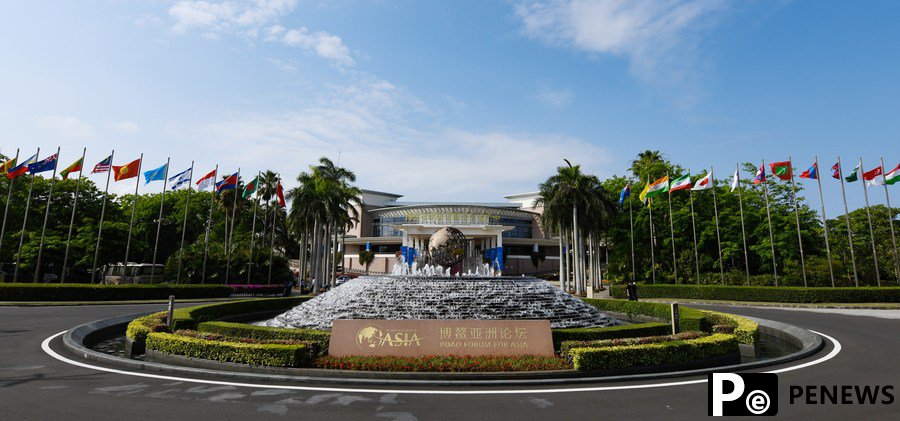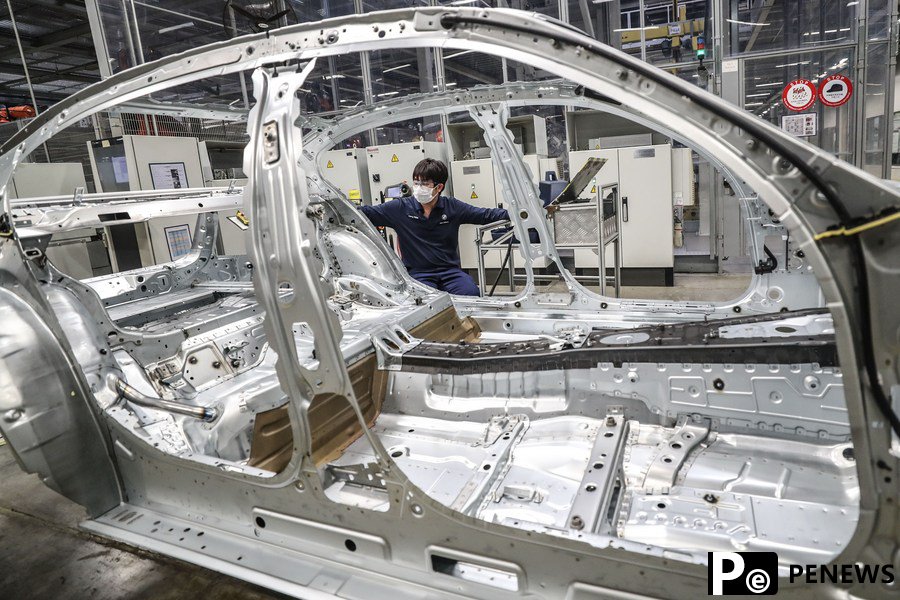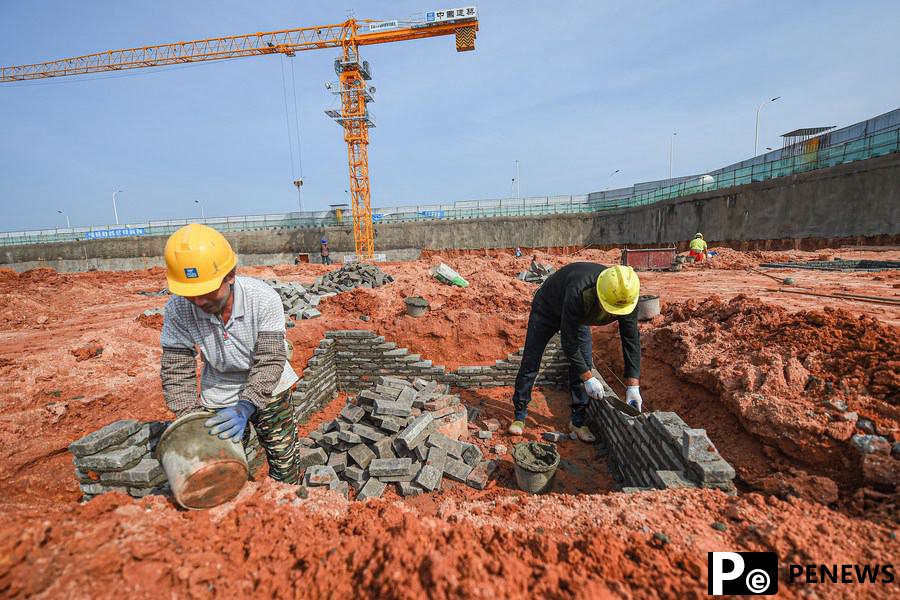Home>>
Xi's answer to "questions of our time" reverberates beyond Boao(People's Daily Online) 08:19, April 19, 2021
BEIJING, April 18 (Xinhua) -- In an increasingly complex world where economic globalization faces headwinds with a threat looming over multilateralism and free trade, where is humanity headed and what is the future of Asia?
Chinese President Xi Jinping answered these "fundamental questions of our time" at the annual conference of Boao Forum for Asia (BFA) in 2018, vowing to open China further and calling for building a community with a shared future for humanity.
The past three years have seen China's persistent efforts in translating the opening-up initiatives Xi put forward into reality, sharing the opportunities of China's development with the rest of the world.

Photo taken on April 17, 2021 shows the Boao Forum for Asia (BFA) International Conference Center in Boao Town, south China's Hainan Province. (Xinhua/Yang Guanyu)
A NEW PHASE OF OPENING-UP
Xi announced a batch of opening-up measures at the annual conference of BFA in 2018, with the expectation that the country's opening-up efforts will benefit all enterprises and people in China and around the world as soon as possible.
The measures included significantly broadening market access, creating a more attractive investment environment, strengthening the protection of intellectual property rights and taking the initiative to expand imports, among others.
"Opening-up is a strategic decision made by China based on its need for development as well as a concrete action taken by China to move economic globalization forward in a way that benefits people across the world," Xi said.
Accordingly, China put into effect the landmark foreign investment law on Jan. 1, 2020. The law grants foreign-invested enterprises access to government procurement markets through fair competition and bans using administrative licensing and penalties to force foreign investors to transfer technology.
The negative list for overseas investors was shortened time and again to further ease market access.
More specifically, the country scrapped foreign ownership restrictions on the automotive industry in 2018, with overseas car-making giants such as BMW and Tesla responding quickly by expanding their presence in the Chinese market.

A man works at the Tiexi Plant of BMW Brilliance Automotive (BBA) in Shenyang, capital of northeast China's Liaoning Province, Feb. 17, 2020. (Xinhua/Pan Yulong)
While accelerating the development of 21 pilot free trade zones nationwide, China released a master plan of building Hainan, the southernmost province where the BFA is held, into a globally influential and high-level free trade port by the middle of the century.
This month, the country unveiled more policies to further liberalize and facilitate trade in the Hainan free trade port, allowing certain regions to relax their control of import and export qualifications for and quantities of commodities such as crude oil, refined oil and sugar, and cancel their licensing systems for imports such as mechanical and electrical products.
Figures speak for themselves. As global capital flows remain volatile due to uncertainties triggered by COVID-19, foreign direct investment into the Chinese mainland, in actual use, expanded 6.2 percent year on year to a record high of 999.98 billion yuan (about 153.16 billion U.S. dollars) last year.
The latest data also showed that the country's total imports and exports of goods surged 29.2 percent year on year to 8.47 trillion yuan in the first quarter of this year.

People work at the construction site of the West-coast Internet Headquarters Base in Haikou, south China's Hainan Province, Oct. 21, 2020. (Xinhua/Pu Xiaoxu)
A SHARED FUTURE
BFA was founded in 2001 when Asian countries sought economic integration in the aftermath of the 1998 financial crisis. Two decades after its inception, the world again stands at a critical moment in history.
Facing a world with growing anti-globalization sentiment, populism, unilateralism and protectionism, China has come up with its own vision of global governance.
Xi called on BFA participants in 2015 and 2018 to build "a community with a shared future for humanity," pursuing an open, inclusive, clean and beautiful world that enjoys lasting peace, universal security and common prosperity.
China, together with many countries, is working to put this concept into practice.
A total of 138 countries and 31 international organizations have signed cooperation agreements with China on the Belt and Road Initiative (BRI), which aims to achieve policy, infrastructure, trade, financial and people-to-people connectivity along and beyond the ancient Silk Road trade routes.







